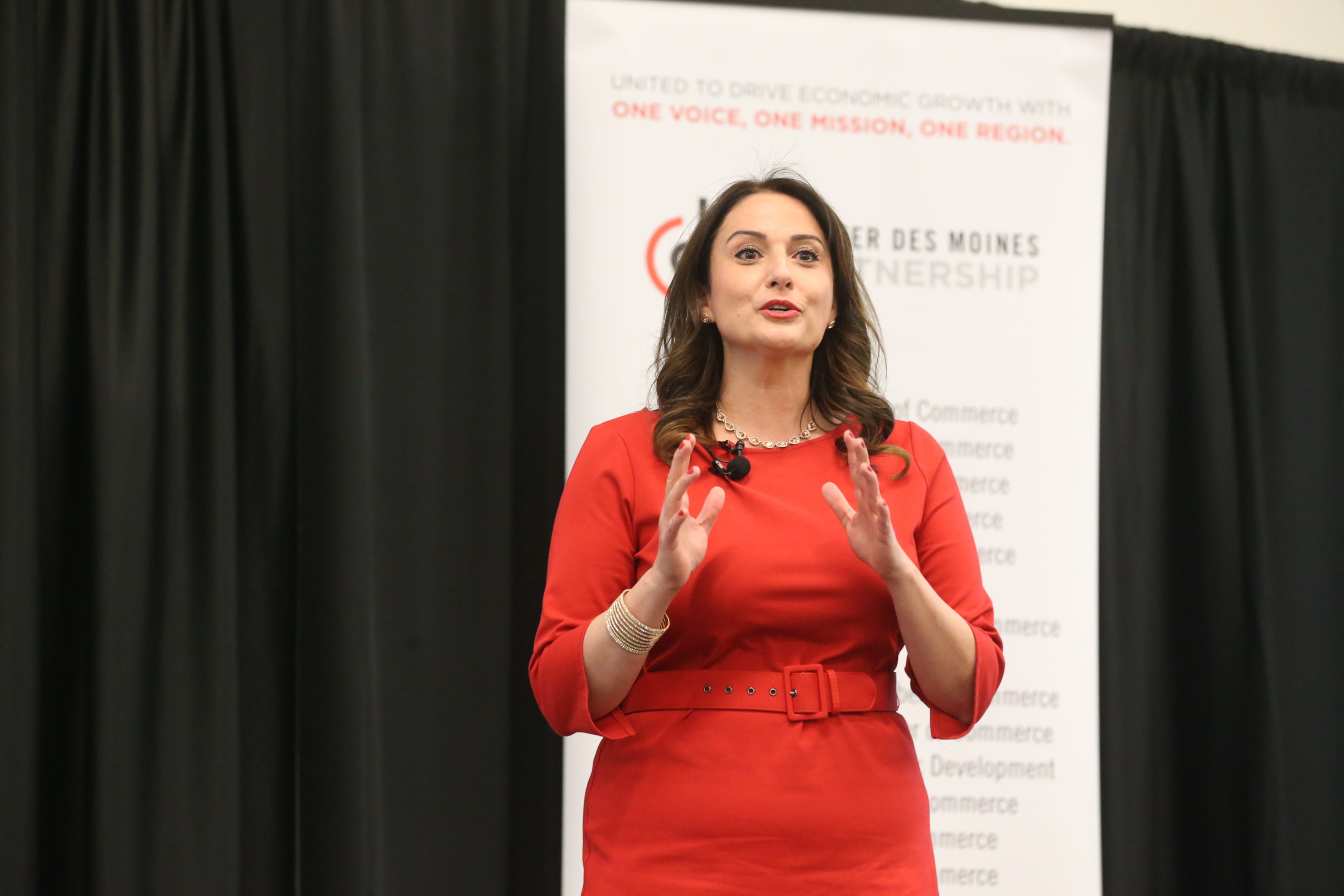On March 13, 2020, Dima Ghawi received a flood of phone calls canceling her scheduled speaking engagements due to the onset of the pandemic. That day when everything changed was one of the most important days in her life and the life of her business, she said.
“That is the day when we need to have a whole renewed purpose and a whole renewed desire to keep our business alive and to go above and beyond to do things that we may not have considered in the past,” Ghawi said during her keynote speech at the Greater Des Moines Partnership’s Small Business Success Summit on March 11.
Ghawi served in leadership roles at global corporate companies like Merrill Lynch and IBM for 18 years until she left in 2015 to start a coaching business for individuals and businesses.
She drew on all her experiences to share two “basic” messages with Des Moines’ small business community that she said are more valuable than ever following the peak impact of the pandemic: building the personal relationships within the company and the relationships between the company and consumers.
While Ghawi was on an international assignment for IBM in Japan, she, two of her co-workers and their boss embarked on an extreme team-building exercise — climbing Mount Fuji.
But the experience quickly became an example of how not to lead. Their leader challenged them to a race to the top and left to head up the mountain.
Ghawi and her colleagues made it to the top by relying on each other rather than their leader.
“We were used to not having a leader, we were used to supporting each other, helping each other, staying together and continuing to help others on the journey as well,” she said.
Like her leader on Mount Fuji, she said some businesses’ goal during the pandemic was to “get to the top first,” which made building trust in their relationships with employees, suppliers and community partners more difficult.
Climbing to the top should be a collective and supportive effort that includes all of a company’s partners, she said.
“It’s easy to say the words ‘build trust,’ but building trust takes so much of the intention of being present and walking with the team step by step and ensuring that they’re safe. But also to pause and understand the challenges that the team members are experiencing, the challenges that our suppliers are dealing with and our community partners, and to be there to support them on their journey as well because that’s when we need them the most in the difficult times, and also in the good times,” she said.
After ensuring strong relationships within the company, Ghawi said building and maintaining a brand can also help small businesses weather difficult times.
While part of building consumers’ trust in a business is being qualified and having a passion for the work, she said it is equally as important in the increasingly digital world for companies to communicate why they are different from their competitors and give consumers a way to personally connect with the business.
“Regardless of how big your company is, if you’re new, if you have maybe 100 employees, it doesn’t matter. What matters is for us throughout our journey to truly be intentional and understand who we are as a person but also our company. What does the company represent, and what can we do in order to continue to communicate it?”
She pointed to the millennial and Gen Z generations, who are looking to patronize companies that have a clear purpose, support values and causes they believe in, and prioritize corporate responsibility.
“It’s not just about the bottom line. It is about changing the world for the better,” she said.
To read more of Ghawi’s story and advice to businesses and individuals, visit her website.
